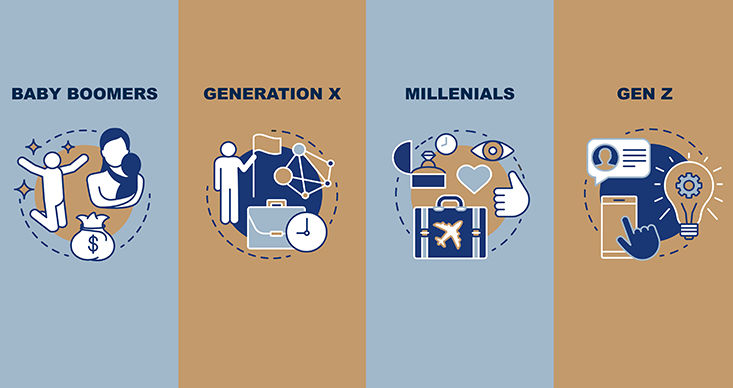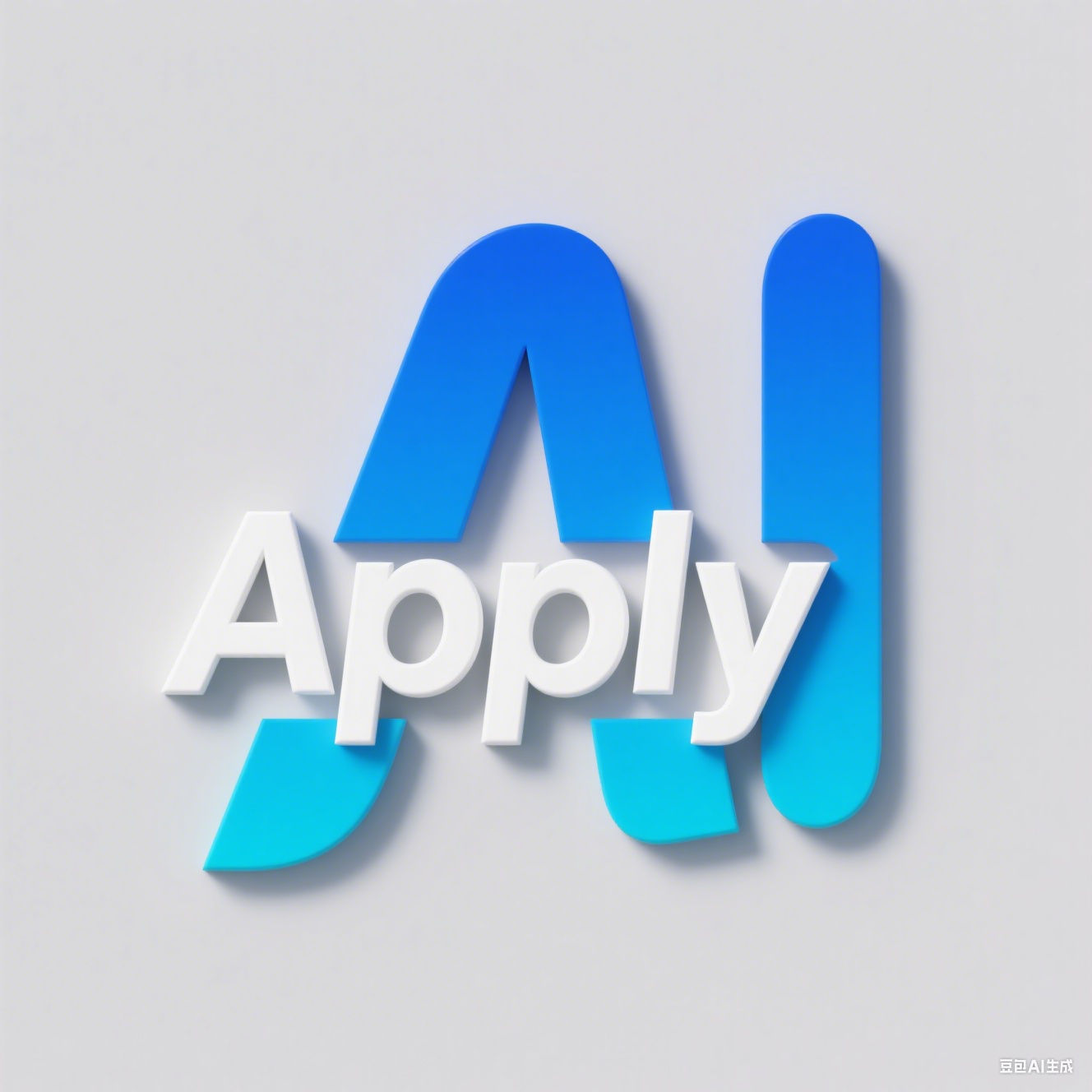Gen Z's Approach to Work-Life Balance
Generation Z is reshaping the workplace. Their approach to work-life balance is unique and transformative.
This generation values personal well-being over traditional career paths. They prioritize mental health and wellness.
Gen Z's work ethic is driven by a strong sense of social responsibility. They seek employers whose values align with their own.
Digital natives, they leverage technology to enhance productivity. Flexible work arrangements are a must for them.
Remote work and flexible hours help them maintain a healthy work-life balance. They are not afraid to leave jobs that don't meet their expectations.
Purpose-driven work is a significant motivator for Gen Z. They want roles that contribute to societal good.
Transparency and authenticity are crucial for them. They expect open communication and ethical practices from employers.
Understanding Gen Z's approach to work is essential for employers. It can lead to better engagement and support.
Understanding Gen Z: Who Are They?

Generation Z, born between the mid-1990s and early 2010s, stands apart from previous generations. They came of age in a digital world, influencing their behavior and attitudes.
They value connection and quick information access. Technology isn't just a tool but an essential aspect of their lives. Growing up with smartphones and social media, they are always connected.
Their experiences are shaped by global events and social issues. Economic challenges, climate change, and social justice movements have greatly influenced their worldview.
Key traits that define Gen Z include:
- Digital native mindset
- Strong social responsibility
- Value for diversity and inclusion
- Desire for authenticity
Understanding this generation means acknowledging their diverse backgrounds and influences. They bring fresh perspectives to the workplace. Employers should adapt to harness their unique strengths.
The Evolution of Work Ethic: From Boomers to Gen Z
The concept of work ethic has evolved significantly across generations. Baby Boomers often viewed work as a lifelong commitment. For them, loyalty and long hours epitomized dedication and success.
Generation X brought a more balanced approach. They began prioritizing job satisfaction and a healthy separation between work and life. They sought more flexibility compared to Boomers.
Then, Millennials entered the scene, emphasizing work-life integration. Digital technologies emerged, allowing them to blend work and personal life more seamlessly. A focus on collaboration and innovation became prominent.
With Gen Z, a new era of work ethic has arrived. Their approach reflects a mix of previous generations’ traits with a unique twist. They seek purpose and value authenticity. Unlike earlier generations, they demand flexibility and transparency.
Key shifts in work ethic over time include:
- Boomers: Loyalty and long hours
- Gen X: Balance and satisfaction
- Millennials: Integration and innovation
- Gen Z: Flexibility and purpose

Understanding these shifts helps employers adapt to Gen Z’s professional preferences. It's essential to recognize the factors influencing this change. Adapting to these trends ensures a supportive environment for Gen Z employees.
What Drives the Gen Z Work Ethic?
Several factors uniquely shape the Gen Z work ethic. This generation grew up during economic shifts and witnessed significant global changes. These experiences profoundly influenced their views on work and success.
Social responsibility is a major driver for Gen Z. They prioritize aligning their job roles with meaningful social causes. Employers sharing these values attract more Gen Z talent.
Technology's influence is profound for Gen Z. As digital natives, they adeptly leverage technology to boost efficiency. This technological savviness informs their productivity and communication styles at work.
Flexibility is crucial for Gen Z workers. They favor remote work options and flexible hours. This adaptability is key for maintaining their desired work-life balance.
Continuous learning and development opportunities are vital too. Gen Z seeks roles that offer growth and skill-building potential. This curiosity propels them toward dynamic work environments.
Factors driving the Gen Z work ethic include:
- Commitment to social responsibility
- Tech proficiency for productivity
- Need for flexible work schedules
- Pursuit of learning and personal growth
Understanding these drivers helps employers create supportive, engaging workplaces. Catered approaches that consider Gen Z's values enhance recruitment and retention efforts.
Work-Life Balance: A Top Priority for Gen Z
For Gen Z, work-life balance is not a mere buzzword. It is a fundamental aspect of their career priorities. Unlike previous generations, they are not willing to sacrifice personal well-being for traditional career advancement.
The desire for work-life balance is rooted in a need for personal fulfillment. Gen Z often prioritizes mental and physical health. They seek to ensure both their personal and professional lives are thriving.
Technology enables their pursuit of balance. Gen Z leverages digital tools to streamline tasks, reducing work hours. They understand the importance of efficiency, which is crucial for maintaining balance.
Flexible work arrangements are integral to their lifestyle. Remote work and flexible hours are preferred over rigid, traditional schedules. This flexibility allows them to effectively juggle work and personal commitments.
Gen Z values employers who support a balanced lifestyle. Companies that promote well-being and consider employee needs attract them. They are likely to stay with employers who respect their work-life priorities.
Mental health is another key aspect they consider. Employers offering mental health support win points with Gen Z. This includes providing resources for stress management and emotional wellness.
Key aspects of Gen Z's work-life balance priorities include:
- Balancing personal wellness with career goals
- Embracing technology for time management
- Preferring flexible work structures
Understanding their priorities helps businesses shape practices that cater to this generation.
Social Responsibility and Purpose-Driven Work
For Gen Z, work is not just about earning a paycheck. It is about making a difference. This generation values social responsibility highly, often aligning their career choices with ethical considerations.
They seek employers whose values mirror their own beliefs. Companies showing commitment to social causes attract Gen Z talent. They prefer workplaces where purpose and impact are prioritized.
Gen Z demands transparency from businesses. They expect openness about corporate social responsibility initiatives. This includes ethical practices, sustainability efforts, and community engagement.
Purpose-driven work motivates them more than traditional incentives. Contributions toward societal good are valued over financial rewards. They often look for roles that allow them to create meaningful change.
The connection between social responsibility and work ethic is clear. Gen Z's commitment to ethical work environments influences their productivity and engagement. For them, working with integrity is non-negotiable.
Core principles of Gen Z's approach to purpose-driven work include:
- Prioritizing ethical and sustainable practices
- Seeking transparency and alignment with personal values
- Valuing purpose and positive societal impact
Employers embracing these values can better resonate with Gen Z, enhancing employee satisfaction.

by Nguyen Dang Hoang Nhu (https://unsplash.com/@nguyendhn)
Flexibility and the Digital Native Advantage
Gen Z is the first generation to grow up with the internet. This digital upbringing profoundly impacts their work habits. They expect flexibility in how, when, and where they work.
Remote work and flexible hours appeal to them. These options allow Gen Z to maintain a healthy work-life balance. Flexibility is not just a preference; it’s a requirement.
Digital tools are second nature to them. They are adept at using technology to boost productivity. Collaboration platforms, video calls, and instant messaging facilitate seamless communication.
Their digital savviness gives them an edge. They quickly adapt to new software and online work environments. Gen Z workers bring efficiency to tech-dependent tasks.
Understanding their need for flexibility is key for employers. Offering adaptable work arrangements can attract and retain Gen Z talent.
Factors influencing Gen Z's flexibility preferences:
- Reliance on technology for daily tasks
- Desire for autonomy in scheduling
- Need for a balanced and adaptable work setting
Employers providing these conditions are likely to see greater engagement.

by Adam Barclay (https://unsplash.com/@adam)
Mental Health, Wellness, and Setting Boundaries
For Gen Z, mental health is a top priority. They recognize the importance of well-being in their careers. This awareness influences their approach to work.
Maintaining boundaries between work and life is crucial. Gen Z often insists on leaving work at work. This mindset helps them manage stress and avoid burnout.
Many of them actively seek supportive workplace environments. They want workplaces that promote mental wellness. This expectation is now a standard for many young professionals.
Managers should be aware of these expectations. Providing resources like mental health days is beneficial. Such initiatives can improve job satisfaction and retention.
To support Gen Z workers, companies can:
- Offer flexible work schedules
- Provide mental health resources and counseling
- Foster a culture of support and understanding
Recognizing the value of mental health contributes to productivity. It’s not just a trend—it's a necessary shift in workplace culture.
Challenging Stereotypes: Myths vs. Realit
Gen Z often faces stereotypes in the workplace. Myths about them include lack of loyalty and an unwillingness to work hard. These assumptions can be misleading.
In reality, Gen Z has a strong work ethic. They are committed and seek meaningful contributions. Their approach is simply different from previous generations.
Understanding these differences is crucial. For instance, digital skills and adaptability are their strengths. Dismissing them as lazy ignores these valuable traits.
Key misconceptions about Gen Z include:
- They are not loyal to employers.
- They prefer virtual connections over face-to-face interactions.
- They lack focus and discipline.
Breaking these myths helps bridge generational gaps. Employers benefit by recognizing Gen Z's unique strengths and perspectives. Acknowledging their contributions fosters a more inclusive and productive work environment.

by Etactics Inc (https://unsplash.com/@etactics)
How Employers Can Engage and Support Gen Z
Engaging Gen Z requires understanding their unique values. They seek purpose-driven work and alignment with company ethics. Employers need to foster this connection.
One effective strategy is offering flexibility. Gen Z values remote work options and flexible hours. This helps them maintain a work-life balance.
Providing continuous learning opportunities is crucial. Gen Z values skill development and career growth. Training sessions and mentorship programs can fulfill this need.
Transparency and authenticity are highly valued. Gen Z expects open communication from leadership. Clear feedback channels can build trust and engagement.
Employers should also focus on mental health support. Initiatives promoting wellness resonate with Gen Z. This might include mental health days or wellness programs.
Lastly, emphasize social responsibility. Gen Z values sustainability and ethical practices. Aligning with these priorities can enhance employer branding.
Key strategies for engaging Gen Z include:
- Offering flexible work arrangements.
- Providing continuous learning opportunities.
- Promoting mental health and wellness support.
- Emphasizing transparency and open communication.
- Focusing on social responsibility and ethical practices.
The Future of Work: Gen Z’s Lasting Impact
Gen Z's work ethic is reshaping the future. Their emphasis on balance and purpose influences workplace norms. Companies are starting to adapt.
Work structures are evolving. Traditional nine-to-five schedules are becoming less common. Flexibility and remote work will likely become standard.
Technological integration is accelerating. Gen Z, as digital natives, demand efficient digital tools. This is pushing companies towards technologicl advancement.
Social responsibility and sustainability are now expected. Gen Z's influence drives businesses to adopt ethical practices. These changes are not temporary but reflect a lasting shift.
Expected future changes include:
- Increased emphasis on flexible and remote work.
- Greater technological integration into daily workflows.
- Stronger focus on corporate social responsibility.
- Permanent shifts towards ethical business practices.
Gen Z’s values reflect their experiences with rapid change. Their approach to work will likely continue to shape future trends. Employers who adapt will thrive in this new landscape
Conclusion: Embracing a New Work Ethic
Gen Z's entry into the workforce marks a significant cultural shift. Their values prioritize work-life balance and social responsibility. This new perspective demands that businesses adapt to thrive.

Employers now face the challenge of integrating flexibility and purpose into traditional roles. Understanding Gen Z's digital proficiency and ethical focus can unlock new strategies. This is essential to engage and retain talented young professionals.
As Gen Z continues to rise, their impact will mold the future of work. Companies that embrace these changes will not only benefit their employees but also secure long-term success. It's time for organizations to redefine workplace norms, setting the stage for a more inclusive and balanced future.
